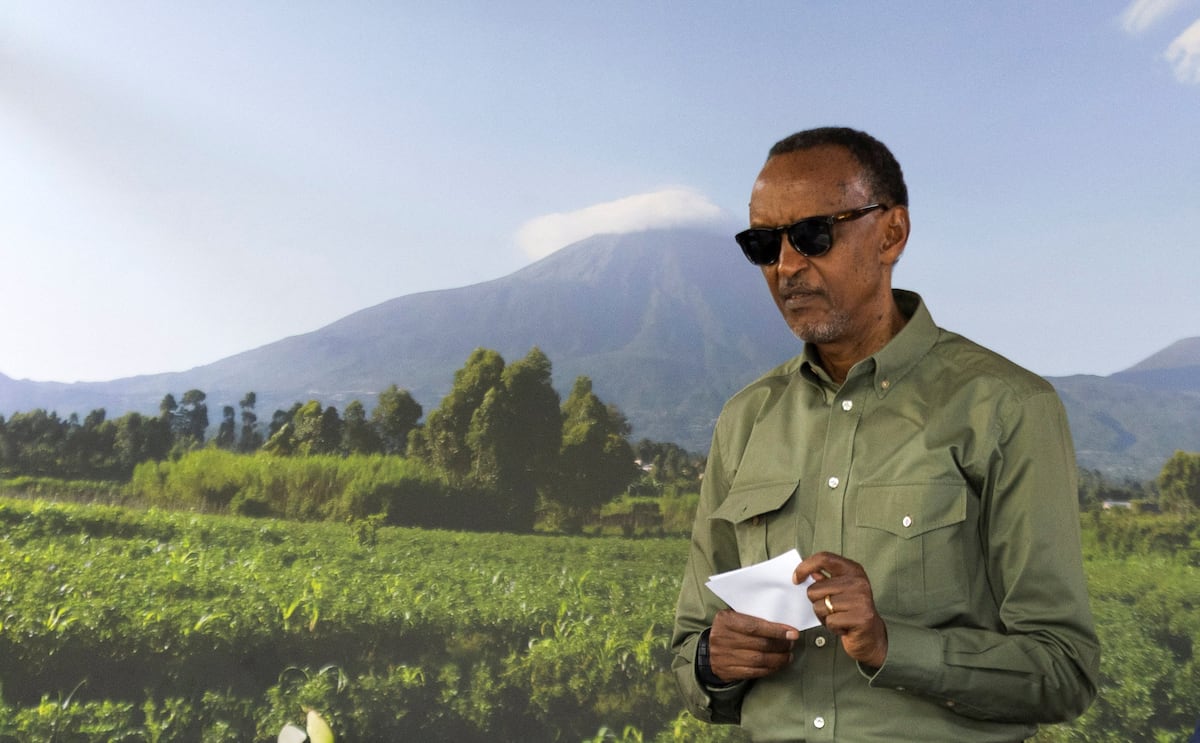Kagame wins Rwanda election with 99% of votes | International

Rwanda’s president, Paul Kagame, who has been in power since 1994, won last Monday’s election and will be re-elected for a new five-year term. With 80% of the votes counted, he receives 99.15% of the ballots, according to data provided by the electoral commission. “These results are clear,” Kagame said Monday night, “there is no doubt now (…) 99% percentage is very impressive. Even if I was elected 100%, it is not just a question of numbers, it is a reflection of the trust you have placed in me. That is what matters to me.”
The other two candidates in these elections, whom the Rwandan regime allowed to contest, excluding the real opposition, were Frank Habineza of the Green Party, who obtained 0.53% of the ballots, and independent Philippe Mpeimana, who reached 0.32%. In 2017, Kagame was already re-elected against the same rivals with 98.79% of the votes. The investigation will continue until July 20, the day when the provisional results of the presidential and legislative elections will be announced, in which 500 candidates will compete for the 80 seats in the Congress of Deputies. A sweeping victory is also expected for the Rwandan Patriotic Front (RPF), the party in power led by Kagame.
These are the fourth consecutive elections that the Rwandan president has won, after 2003, 2010 and 2017, all of them with percentages above 90%. Kagame, 66, has led the RPF since 1990, when it was an armed Tutsi group that fought the Rwandan army. In 1994, after the genocide of about 800,000 Tutsis and moderate Hutus, he took power in Kigali and was named vice president and defense minister of the new transitional government, although he was already considered the leader. In fact and chief architect of Rwanda’s reconstruction.
In his first years in power, Kagame launched an aggressive campaign to hunt down those responsible for the genocide and the Hutu armed groups, many of whom had fled to the neighboring Democratic Republic of Congo. Thus began a violent war that led to nearly six million deaths and the fall of dictator Mobutu Sese Seko. The conflict continues today with the support of the Rwandan authorities’ M23, a rebel group that fights in the Congolese region of Kivus and is at the core of the disagreement between Kigali and Kinshasa.
In 2000, Kagame assumed the presidency and was elected three years later in the first elections since the genocide. Since then, it has launched an ambitious program of economic reforms, the fight against corruption and social protection that has established Rwanda as one of the most stable and most developed African countries. However, his regime is also known for its lack of freedoms, with opponents being jailed, forced into exile or having their political rights restricted.
Constitutional reform approved in a referendum in 2015 has allowed him to remain in power and enabled him to contest elections for the last time in five years. In 2018 he served as chairperson of the African Union, during which time he promoted the creation of a continental free trade area.
To know what happens outside is to understand what will happen inside, don’t miss anything.
keep reading
Follow all international updates Facebook And Xor in Our weekly newsletter,
(tags to translate)Rwanda
